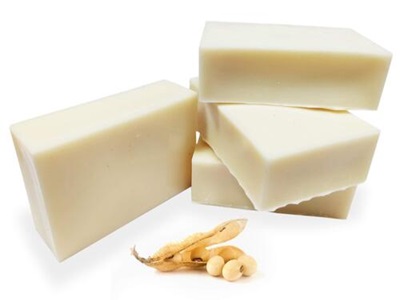The latest market report published by Credence Research, Inc. The global demand for vegetable wax market was valued at USD 100.5 Million in 2022 and is expected to reach USD 170.1 Million in 2030, growing at a CAGR of 6.8% between 2023 and 2030.
The vegetable wax market has been experiencing remarkable growth in recent years, driven by the increasing demand for eco-friendly and sustainable products. As consumers become more conscious of the environmental impact of their choices, the vegetable wax industry has emerged as a promising alternative to traditional paraffin wax. In this article, we will explore the factors contributing to the growth of the vegetable wax market and its role in promoting sustainability.
The Rise of Sustainable Alternatives
One of the primary reasons behind the vegetable wax market’s surge is the growing preference for sustainable alternatives. Traditional paraffin wax, derived from fossil fuels, has raised concerns due to its contribution to greenhouse gas emissions. In contrast, vegetable waxes, such as soy wax, palm wax, and rapeseed wax, are renewable resources, making them a more environmentally friendly choice. As consumers seek products that align with their eco-conscious values, the demand for vegetable waxes continues to rise.
Wide Range of Applications
Vegetable waxes have a diverse range of applications, further fueling their market growth. They are commonly used in the production of candles, cosmetics, food packaging, pharmaceuticals, and even as coatings for fruits and vegetables. Manufacturers appreciate the versatility of vegetable waxes, which can be tailored to meet specific requirements, such as melting points and consistency. This adaptability has opened up opportunities in various industries, contributing to the expansion of the vegetable wax market.
Browse the Full Report: https://www.credenceresearch.com/report/vegetable-wax-market
Eco-Friendly Properties
Vegetable waxes are celebrated for their eco-friendly properties. They are biodegradable and do not release harmful chemicals when burned, making them an excellent choice for candles. Soy wax, in particular, is a popular option due to its clean and long-lasting burn. Additionally, vegetable waxes are often sourced from sustainable farming practices, reducing their environmental impact. As consumers seek products that minimize harm to the planet, the eco-friendly nature of vegetable waxes is a significant selling point.
Government Regulations and Initiatives
Governments and regulatory bodies worldwide are also promoting the use of vegetable waxes as part of their sustainability initiatives. Some countries have imposed restrictions on the use of paraffin wax in certain applications due to its environmental concerns. This has created a favorable environment for vegetable wax manufacturers, as they align with the shifting regulatory landscape and support government efforts to reduce carbon footprints.
Challenges and Future Outlook
While the vegetable wax market continues to grow, it is not without challenges. Competition from other sustainable materials, fluctuating crop yields, and price volatility are some of the obstacles that the industry faces. However, as research and development efforts focus on overcoming these challenges, the future looks promising for vegetable waxes. Their sustainable and eco-friendly properties position them as key players in the quest for a greener future.
The vegetable wax market is on an upward trajectory, driven by the global shift towards sustainable and eco-friendly products. With their renewable nature, diverse applications, and government support, vegetable waxes are poised to play a vital role in reducing the environmental impact of various industries. As consumers continue to prioritize sustainability, the vegetable wax market will likely continue to expand, offering sustainable solutions for a greener future.
List of Companies Covered:
- Cargill
- Kline & Company
- Faith Industries
- Dow Corning
- BASF SE
- Akzo Nobel
- Koster Keunen
- Kemie Industries
- Dhariwal Corporation
- Megha Group of Companies
- Paragon Metachem
- Triveni Chemicals
- Unichem Polymers Pvt Ltd
- Excel Polymer Industries
- Synergy Poly Additives Pvt Ltd
- Petroleum Product Mfg. Society
- Australian Wax Co.
- Kavya Impex
- Katyani Exports
- Delhi Wax Refinery
- Waxoils Pvt Ltd
- Shri Ram Sons Wax Pvt Ltd
- Chaitanya Solvex Pvt Ltd
- Others
Browse the Full Report: https://www.credenceresearch.com/report/vegetable-wax-market
By Segmentation Type
By Type of Vegetable Wax
- Carnauba Wax
- Soy Wax
- Candelilla Wax
- Jojoba Wax
- Rice Bran Wax
By Application
- Cosmetics and Personal Care
- Food and Beverage
- Candles
- Pharmaceuticals
- Adhesives and Sealants
By End-Use Industry
- Manufacturing
- Consumer Goods
- Pharmaceutical and Healthcare
- Art and Crafts
- Automotive
By Geography Type
- North America (U.S. and Rest of North America)
- Europe (U.K., Germany, France, and Rest of Europe)
- Asia Pacific (Japan, China, India, and Rest of Asia Pacific)
- Rest of World (Middle East & Africa (MEA), Latin America)
Contact Us:
Office No 3 Second Floor,
Abhilasha Bhawan, Pinto Park,
Gwalior [M.P]
474005 India
Phone: +91 6232 49 3207
Email: sales@credenceresearch.com
Visit: https://www.credenceresearch.com

